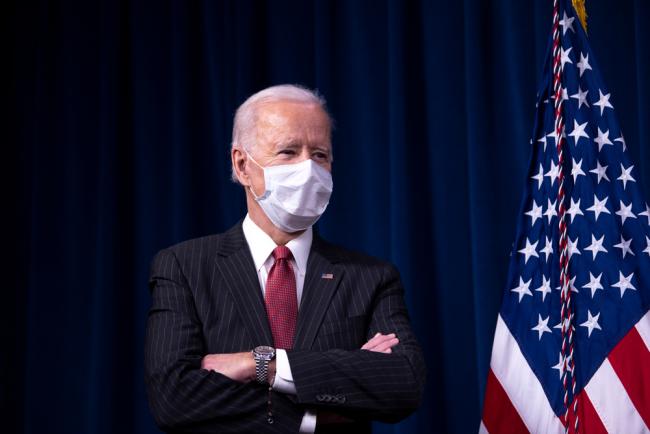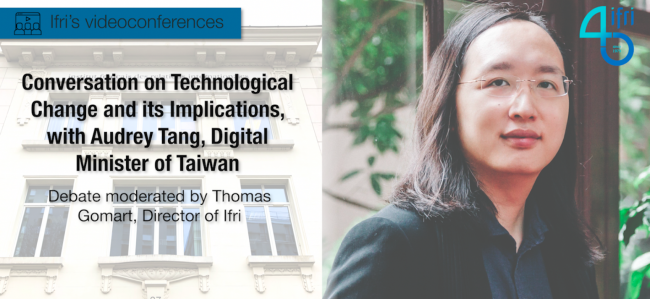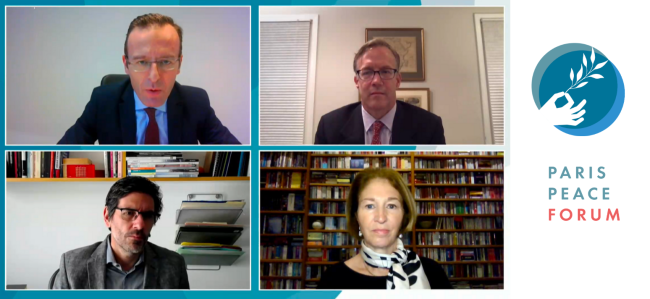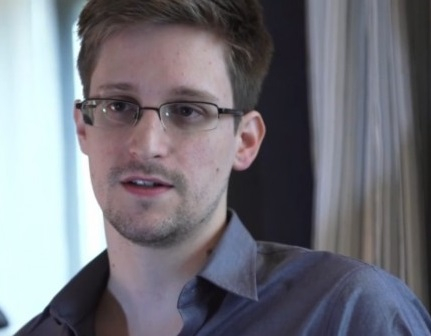The Biden administration in turmoil (video replay)
Celebrating its 20th edition, Ifri's Annual Conference on the United States convened a first panel on national politics and a second on the evolution of U.S. trade. An exchange between Thierry de Montbrial and Henry Kissinger, 56th Secretary of State, concluded the day. Videos of all interventions are below.


The arrest of Russian cybersecurity titan Ilya Sachkov
Our main story this week is the treason case against Ilya Sachkov, the 35-year-old CEO of the cybersecurity firm Group-IB. On Wednesday morning, September 29, hours after officials raided the company’s Moscow office, a local court jailed Sachkov for the next two months, pending trial.
Technology and Economics: Techno-nationalism VS Techno-globalism in East Asia
Contact tracing and Internet governance: debate with Audrey Tang, Digital Minister of Taiwan
Audrey Tang, Digital Minister of Taiwan, discussed the impact of technological changes such as 5G, contact tracing and Internet governance in an online debate.
[Videoconference] Japan’s Cyber-Security Strategy: From the Olympics to the World
A videoconference on Japan’s cyber-security strategy was held by Ifri's Center for Asian Studies on September 15, 2020.


Emmanuel Macron aide blames Russia for hacking attempts
Russia watchers say Moscow is deploying considerable resources to swing the French election.

Isolating, Not Taming: What's Behind the Impetus to "Digital Sovereignty" in Russia?
April 2014 was a particularly bitter month for Russian internet users and the local internet industry. President Vladimir Putin unsurprisingly made headlines when, at the Media Forum in St. Petersburg, he publicly labeled the internet as a “CIA project” and launched an attack against Russian internet businesses. Putin particularly expressed reservations about the successful Russian search engine Yandex, as it is registered in the Netherlands for, as Putin stated, “not only… taxation purposes but for other reasons, as well.” A week earlier, during his annual call-in TV show, Putin also referenced the internet when, responding to a question from Edward Snowden, he rejected any mass surveillance of the network by Russian law enforcement agencies.
Edward Snowden and democratization through the web
Why did Edward Snowden decide to disclose information related to U.S. secret services?
- Edward Snowden belongs to that generation of militants who do believe in the web as a tool for democratization, and do think that, to some extent, intelligence services of big states intend to monitor and to control the web at the expense of civil societies. This generation of militants believes in democratization through the web, and they want to fight against the "raison d'Etat". In that sense, there will be certainly other people like Snowden who will be ready to defend that cause of transparency. We'll see what is going to happen, but I definitely think he will become more and more a sort of a symbol of this cause, as Julian Assange is.

The Russian Internet Economy
The Russian Internet economy is demonstrating a substantial rate of growth, one that is significantly outperforming the rest of the domestic economy. According to joint research by the Higher School of Economics and the Russian Association of Electronic Communications, while in 2011 the Internet economy accounted for just 1% of Russia’s GDP, it was expected to grow at a rate of about 30% in 2012. According to BCG reports, the Internet contributed to 1.9% of Russian GDP in 2010, and is expected to grow by up to 2.8% by 2016. E-commerce, which combines retail and electronic payment systems, accounts for the large majority of the Internet economy, but other segments are also growing. Advertising is the fastest growing part of the Russian Internet economy, growing at a rate of 50% annually.

What lies behind Russia's new laws ?
Does the introduction of these laws lead to a more civilized political and cultural discourse in Russia?
- The main stake of these laws does not really deal with the emergence of a more civilized political discourse in Russia. What ultimately lies behind the Duma’s new laws is a mixture of nervousness about a political environment that is wholly unfamiliar, and a belief in the methods of Vladimir Putin’s previous stints as president.
Support independent French research
Ifri, a foundation recognized as being of public utility, relies largely on private donors – companies and individuals – to guarantee its sustainability and intellectual independence. Through their funding, donors help maintain the Institute's position among the world's leading think tanks. By benefiting from an internationally recognized network and expertise, donors refine their understanding of geopolitical risk and its consequences on global politics and the economy. In 2025, Ifri supports more than 80 French and foreign companies and organizations.











